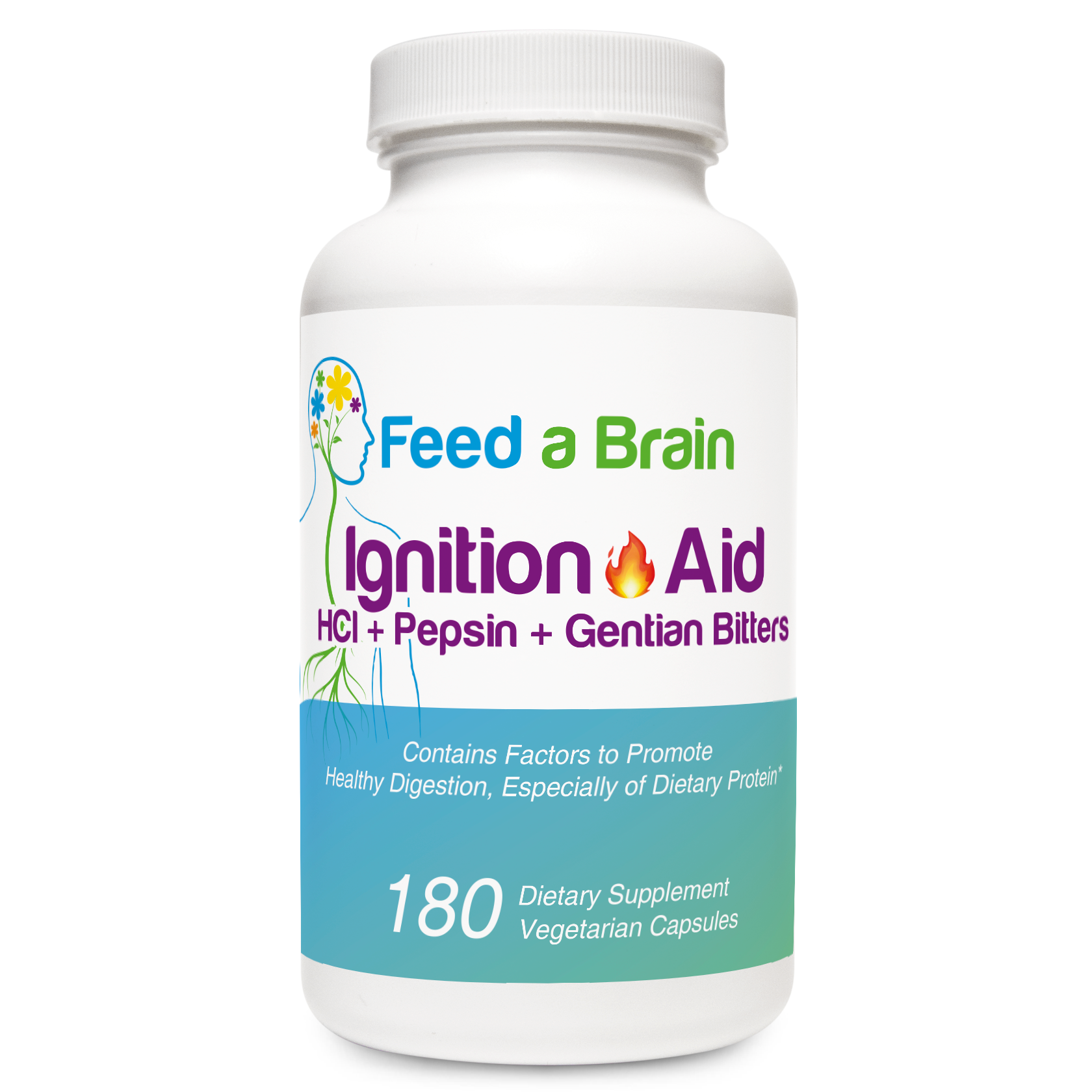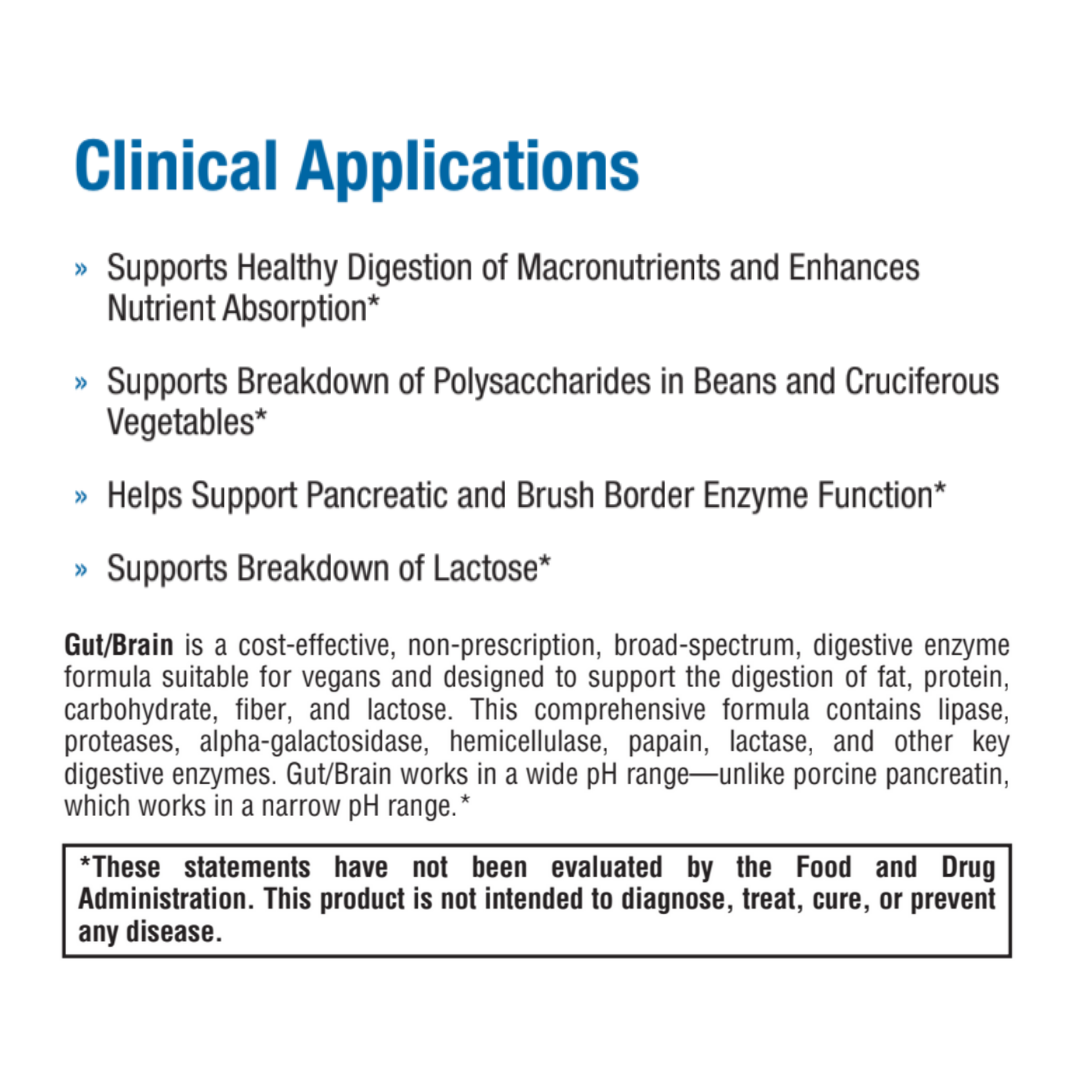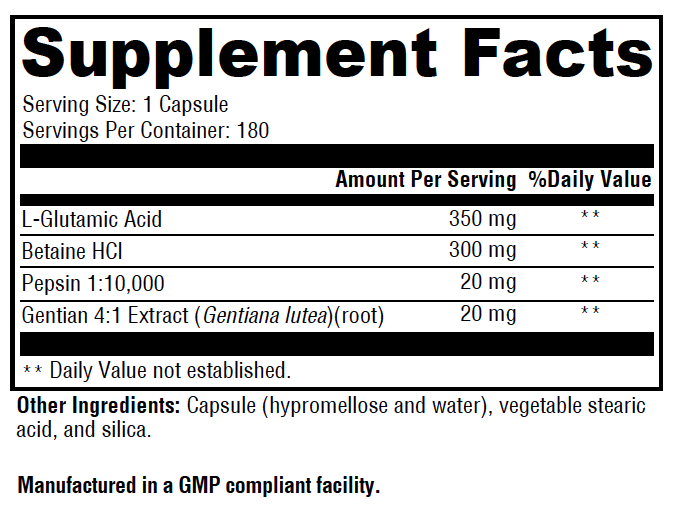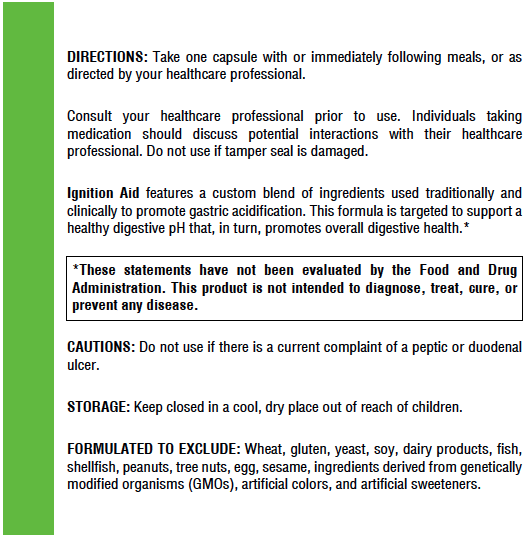What can cause low stomach acid? Stress, poor sleep, and frequent alcohol consumption can all cause low stomach acid. Even chronic worrying and anxiety can cause our stomach to release stomach acid when there is no food in our stomach. This can mean that we don’t have enough stomach acid when we actually need it. Production of stomach acid also decreases as we age especially after age 60.
So how do you know if your stomach acid is low?
You can take an expensive test, or… you can do an easy at home test. Remember the volcanoes you made in school with baking soda and vinegar? This works the same way. Carbon dioxide is released when baking soda comes into contact with an acid like our stomach acid. How can we test at home if we have low stomach acid? Simple! Put a teaspoon of baking soda into 8 oz of water. Drink this first thing in the morning before eating food. If you don’t burp in 60 seconds, then you have low stomach acid!
Are you starting to see why this is such a common problem? Our world is 24/7 stress! We are always on the go and we always know about the worst news happening all over the world even if we try to avoid watching the news!
Low stomach acid can make it much harder to absorb essential amino acids from protein and essential fatty acids from the fats we eat. Most people think about “building muscles” when we talk about protein, but the amino acids in protein also make neurotransmitters like dopamine and serotonin. Deficiencies in these key nutrients can dramatically lower our focus, motivation, mood, and our ability to learn new information.
Essential fatty acids make our cell membranes and our brain cells. When we don’t absorb these essential nutrients, our body thinks it’s starving so we start to feel really bad.
So what do we do about it? Well getting better sleep, reducing stress, and drinking less alcohol can all help, and… Betaine HCl capsules turn into the same kind of acid as our stomach acid! This dramatically boosts our ability to absorb fats and proteins!
Stomach acid is extremely important in breaking down our nutrients so that our body is actually breaking down the food we eat and we are absorbing the nutrients. Our body not only needs this acid to break down these micronutrients, but also to convert pepsinogen into pepsin. Pepsin helps our body absorb the amino acids in the small intestine so taking Betaine HCl and pepsin together to dramatically increase absorption of some of the most important nutrients! Pepsin production also decreases as we age so this may be an essential supplement for you. I also recommend L-glutamic acid to create an even more acidic environment to help break down fats and proteins and to activate pepsin.
To make this combination even more effective, use a kind of digestive bitters like gentian root. This helps your stomach to produce more acid when you need it. Gentian root can also help the pancreas in aiding digestion with gastric juices and enzymes. This combination is the trifecta that gets rid of so many digestive problems! If you feel heavy after eating or that the food you ate is just sitting in your stomach, then this will probably fix that.
Most people just jump straight to probiotics and enzymes, but get few results because they skip this crucial step! Stomach acidity is essential for maintaining a healthy balance of intestinal flora. If the proteins and fats are not digesting, then this can cause an overgrowth of bad microbes that can cause indigestion, brain fog, and a host of other problems. Which brings us to secret #2: acid resistant digestive enzymes.
Read the doctors reference sheet for Ignition🔥Aid.





Reviews
There are no reviews yet.